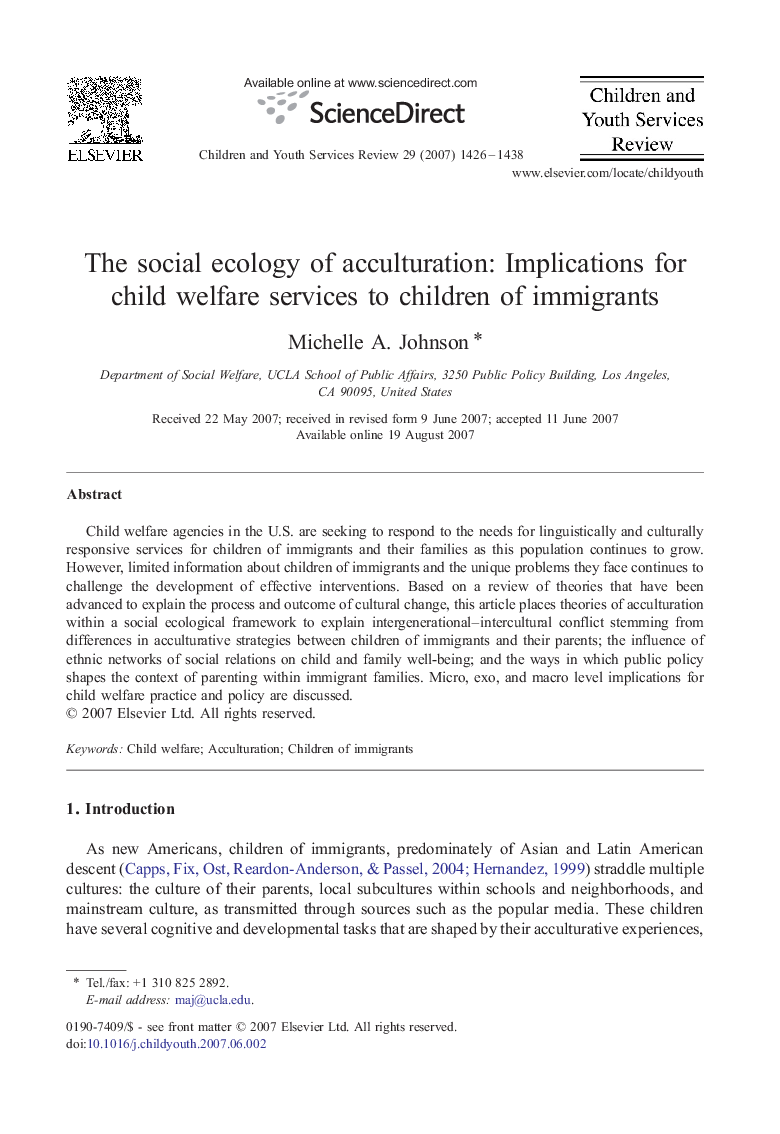| Article ID | Journal | Published Year | Pages | File Type |
|---|---|---|---|---|
| 347196 | Children and Youth Services Review | 2007 | 13 Pages |
Child welfare agencies in the U.S. are seeking to respond to the needs for linguistically and culturally responsive services for children of immigrants and their families as this population continues to grow. However, limited information about children of immigrants and the unique problems they face continues to challenge the development of effective interventions. Based on a review of theories that have been advanced to explain the process and outcome of cultural change, this article places theories of acculturation within a social ecological framework to explain intergenerational–intercultural conflict stemming from differences in acculturative strategies between children of immigrants and their parents; the influence of ethnic networks of social relations on child and family well-being; and the ways in which public policy shapes the context of parenting within immigrant families. Micro, exo, and macro level implications for child welfare practice and policy are discussed.
